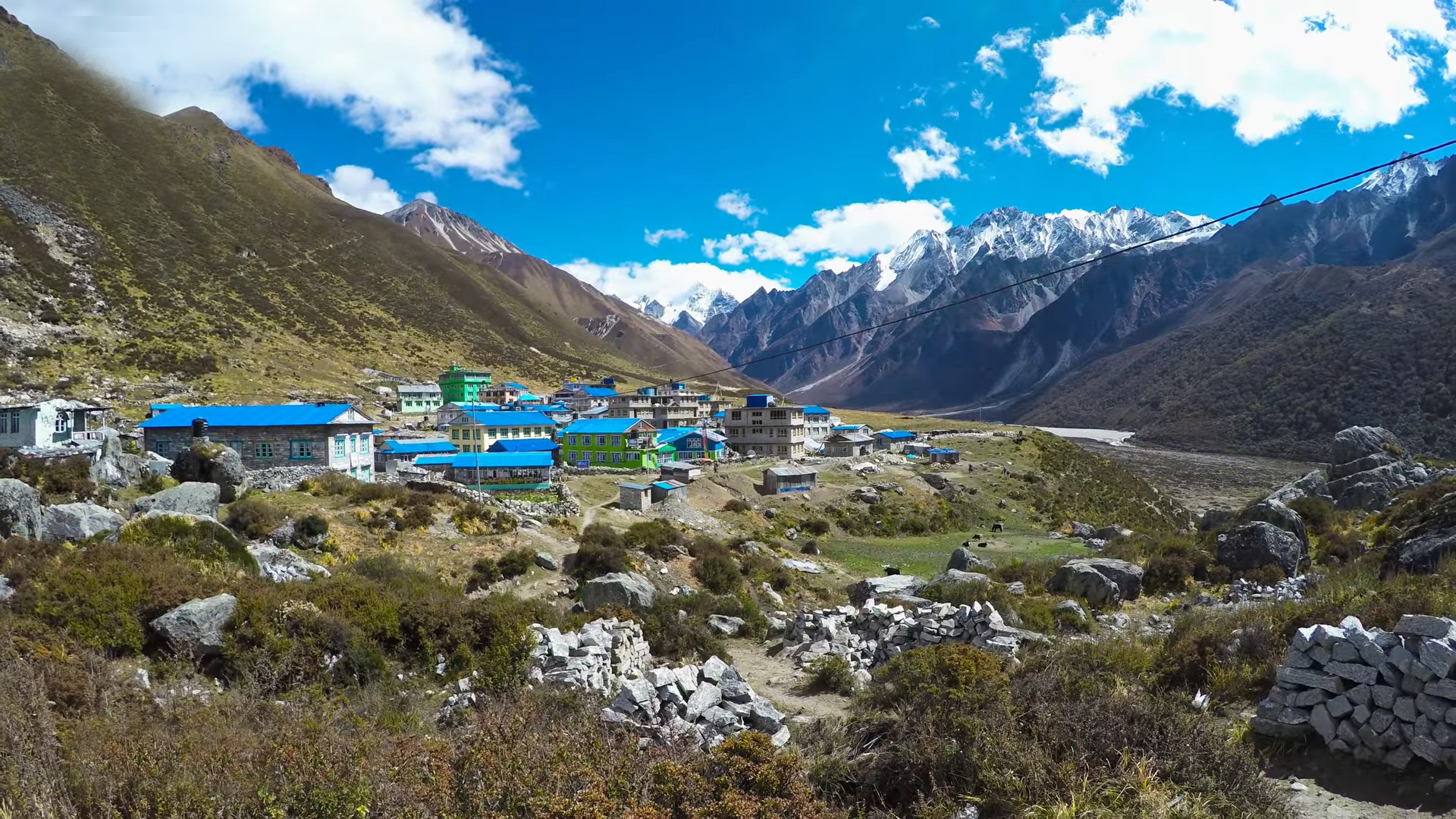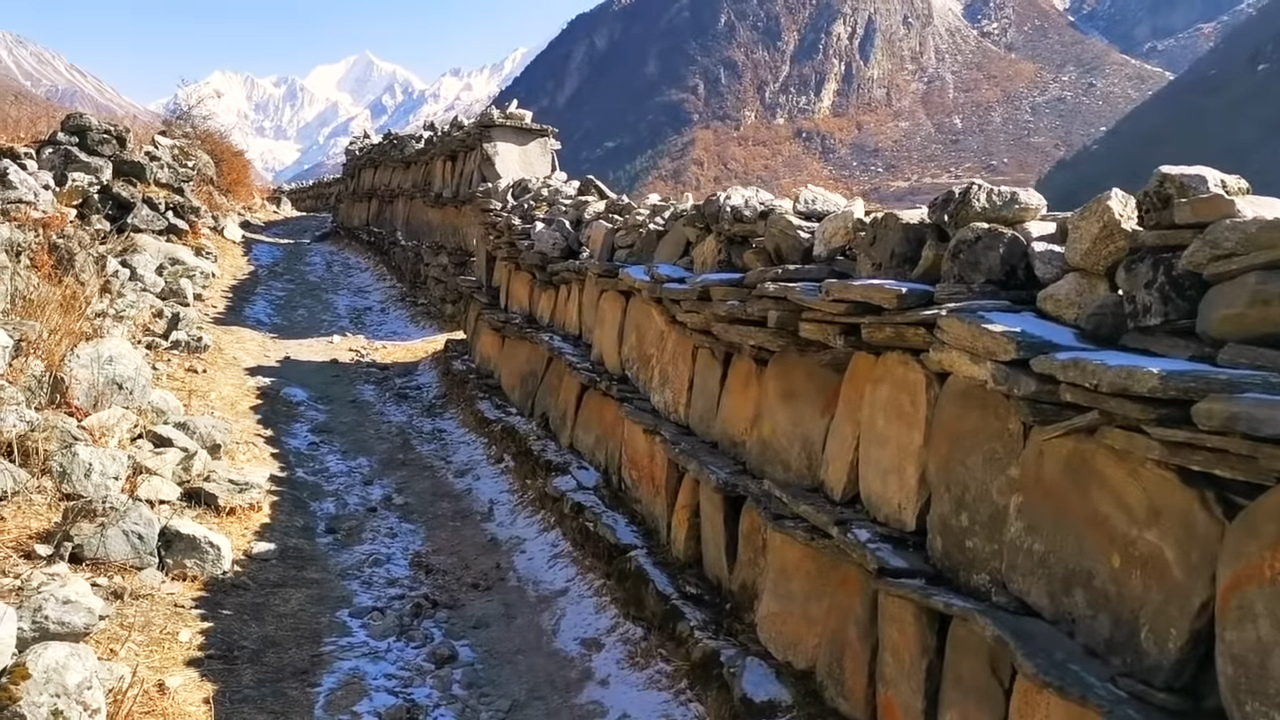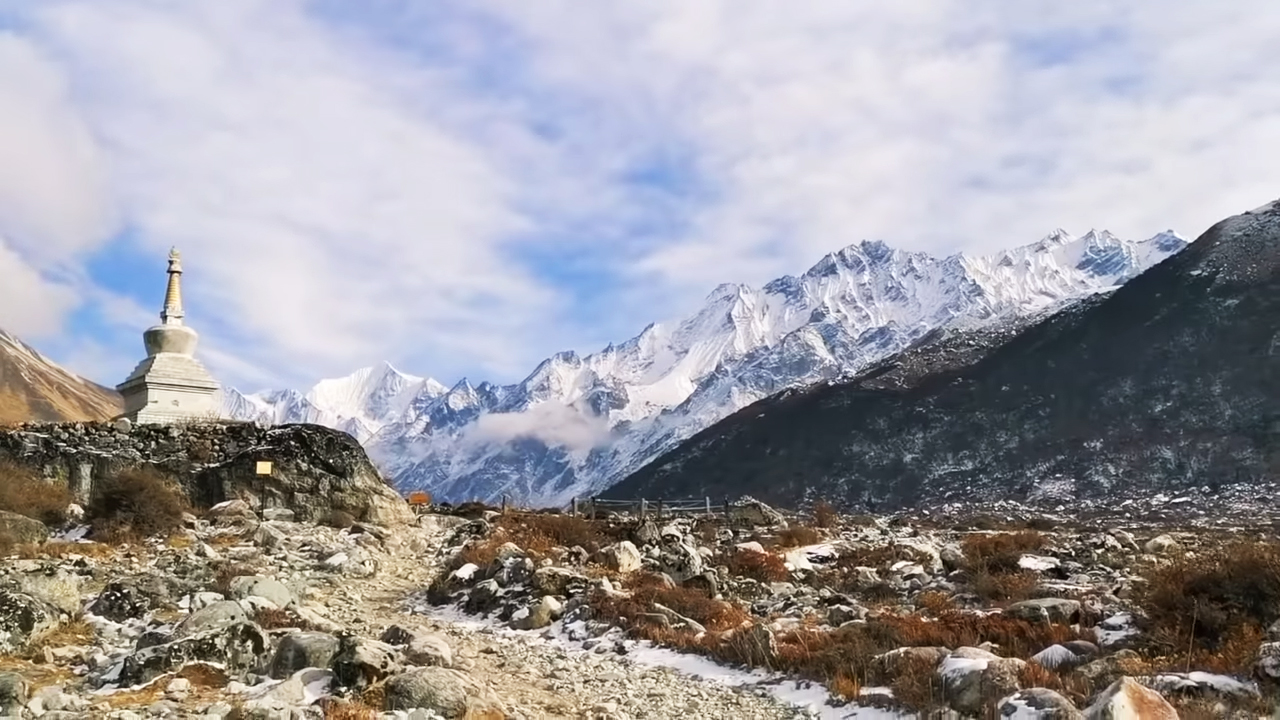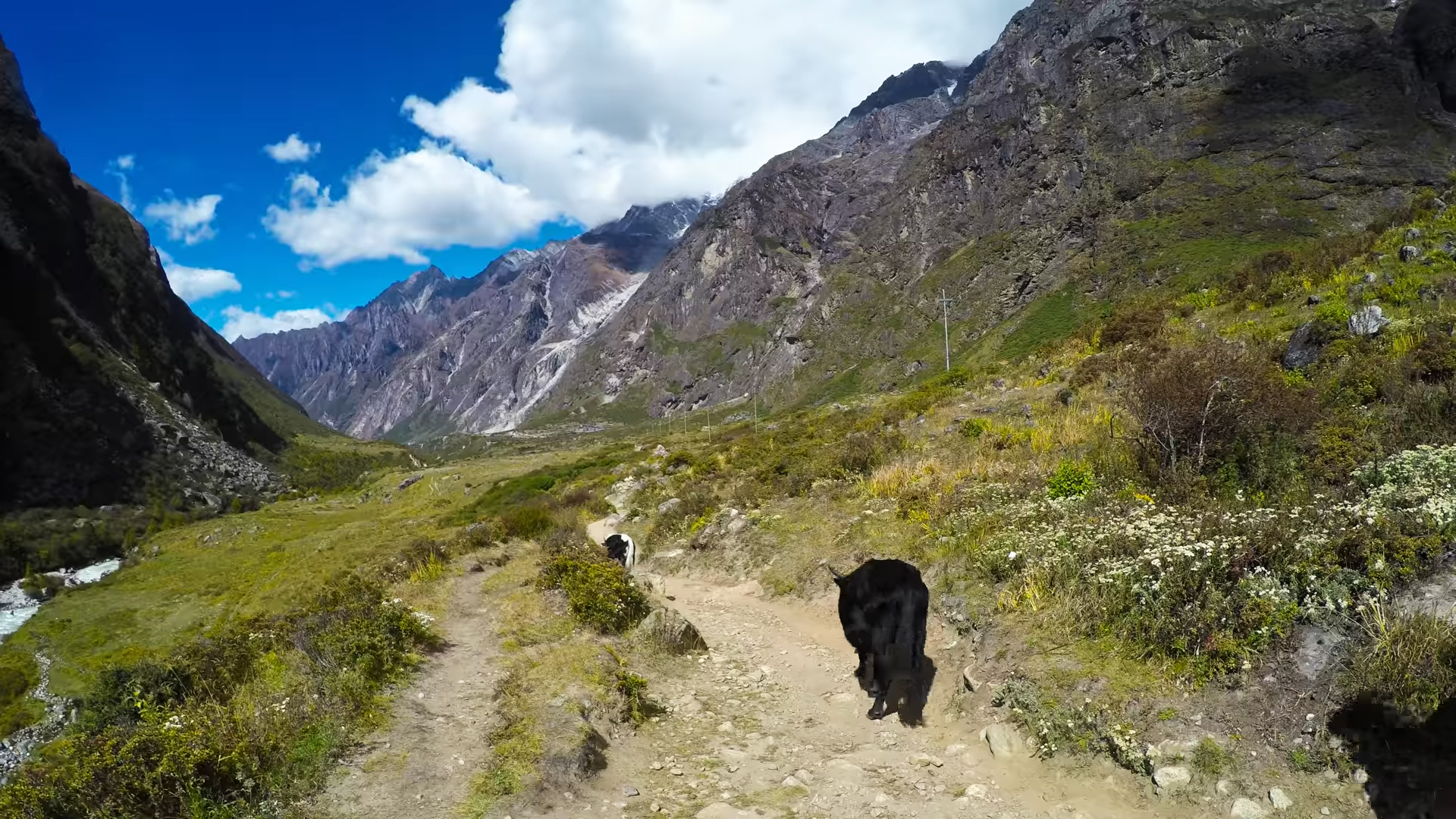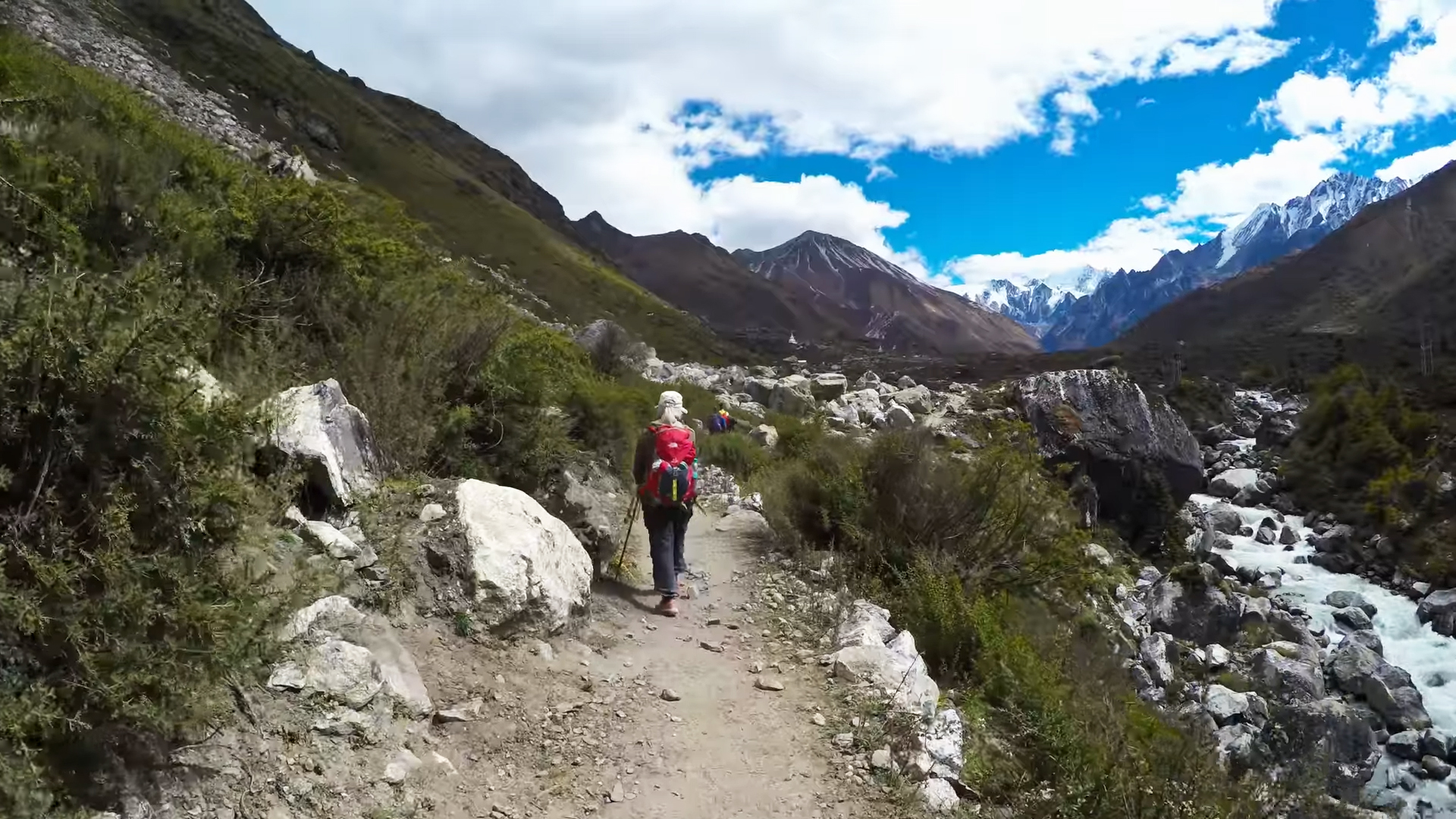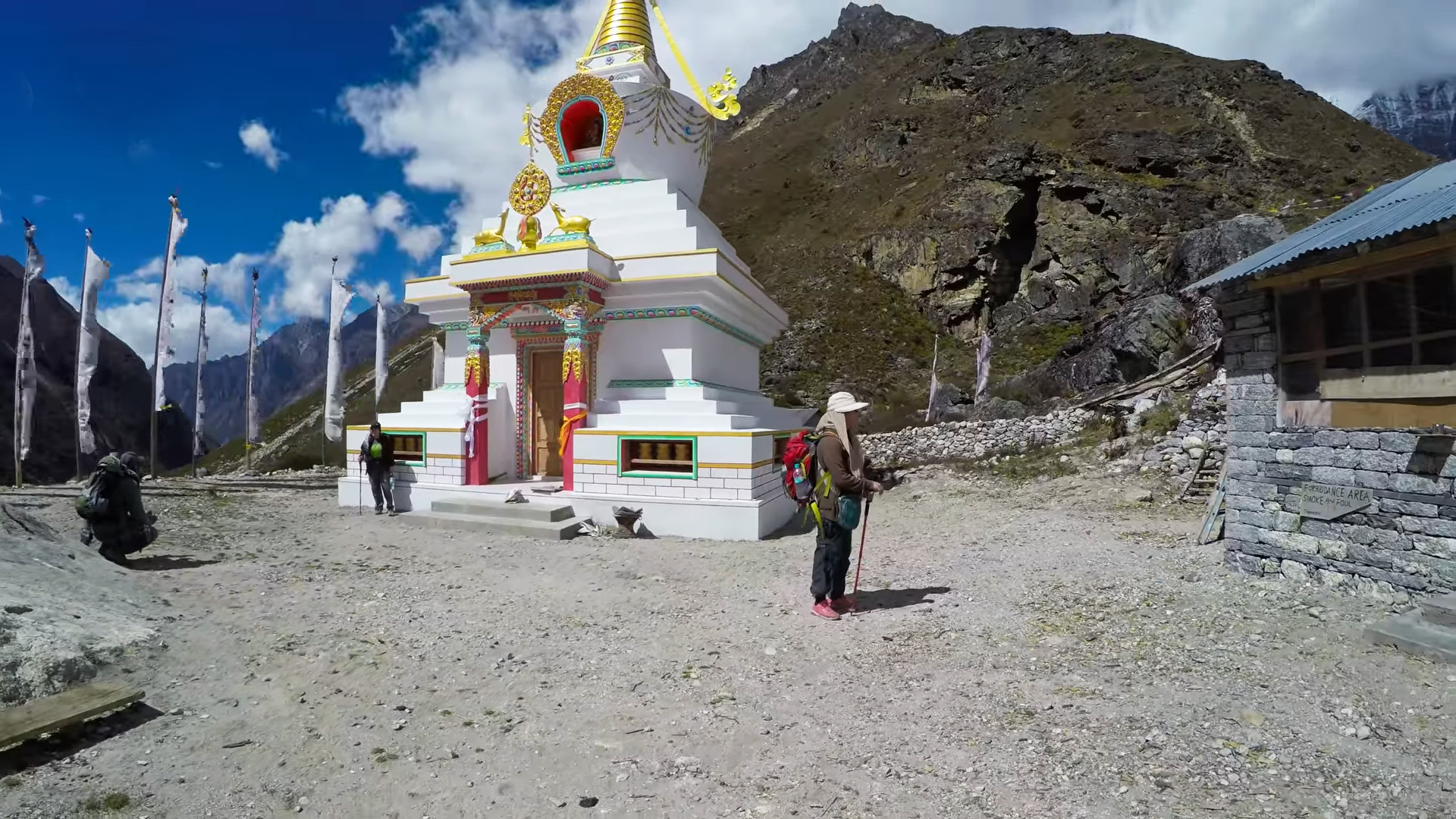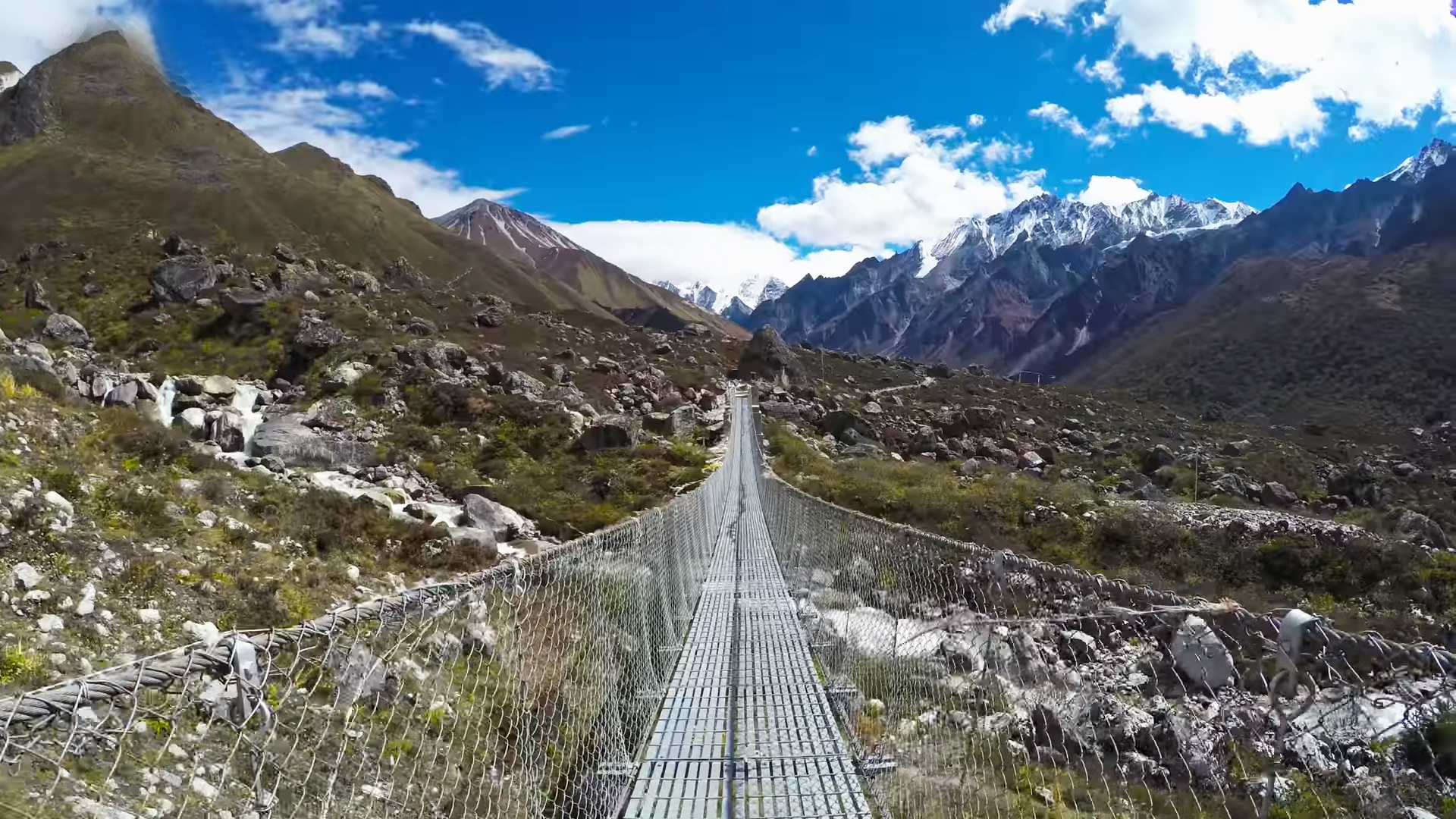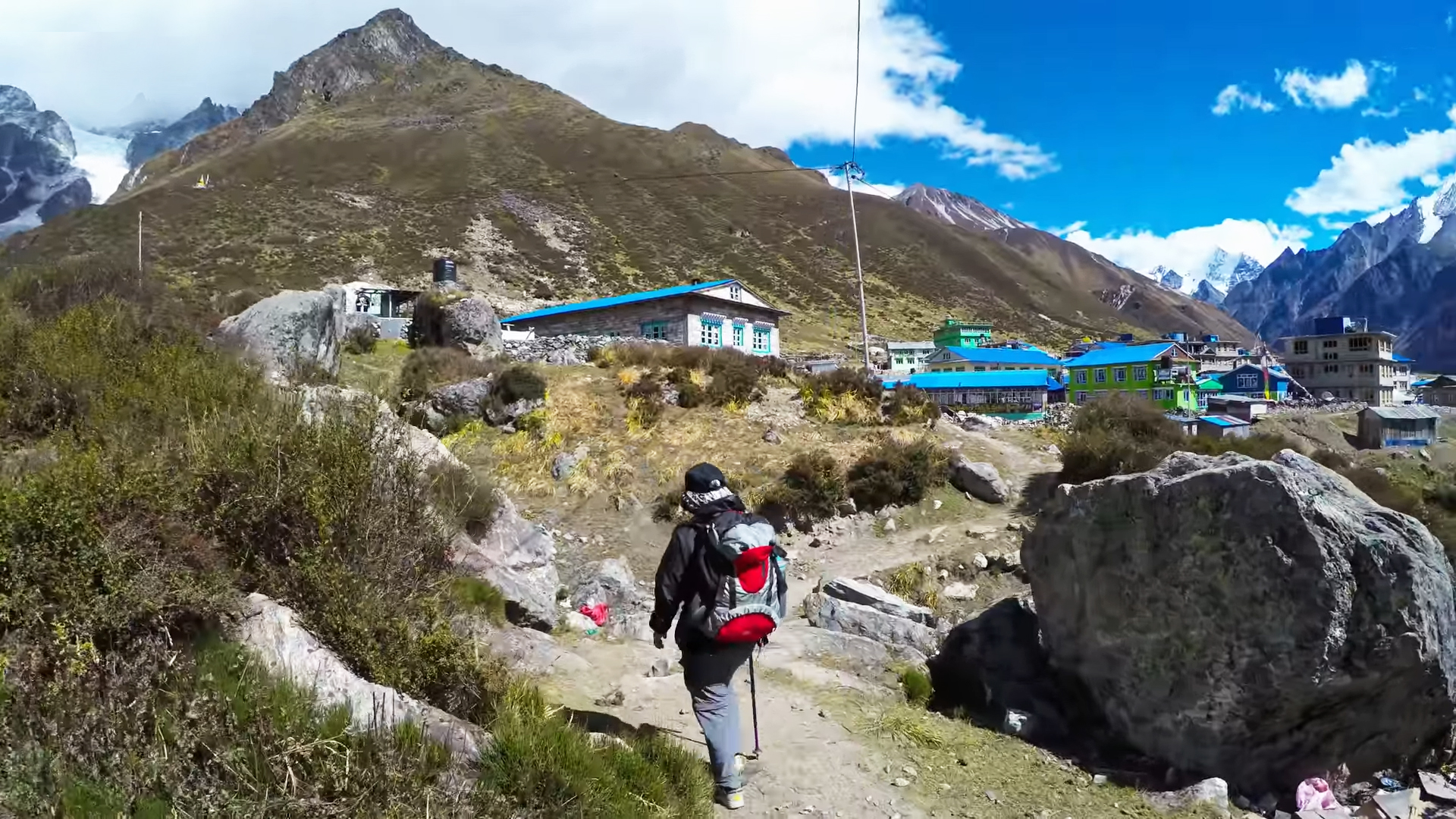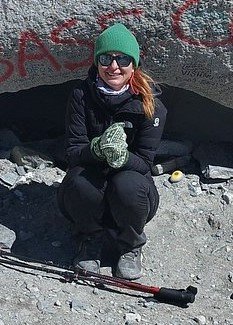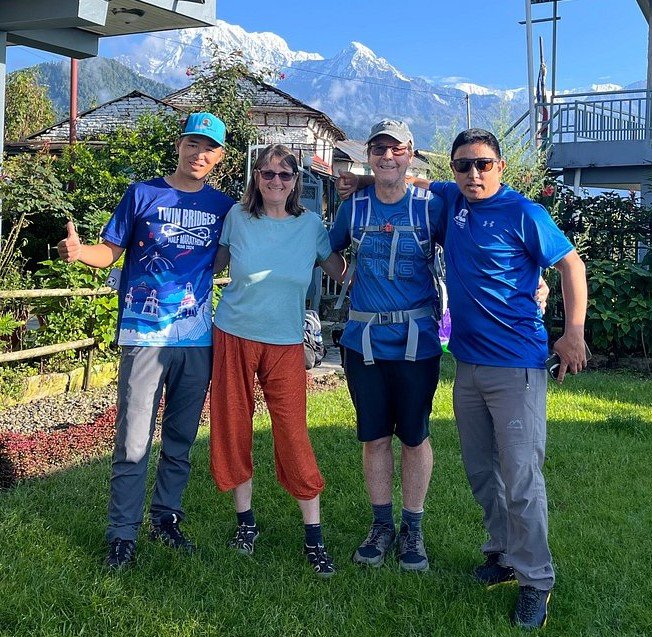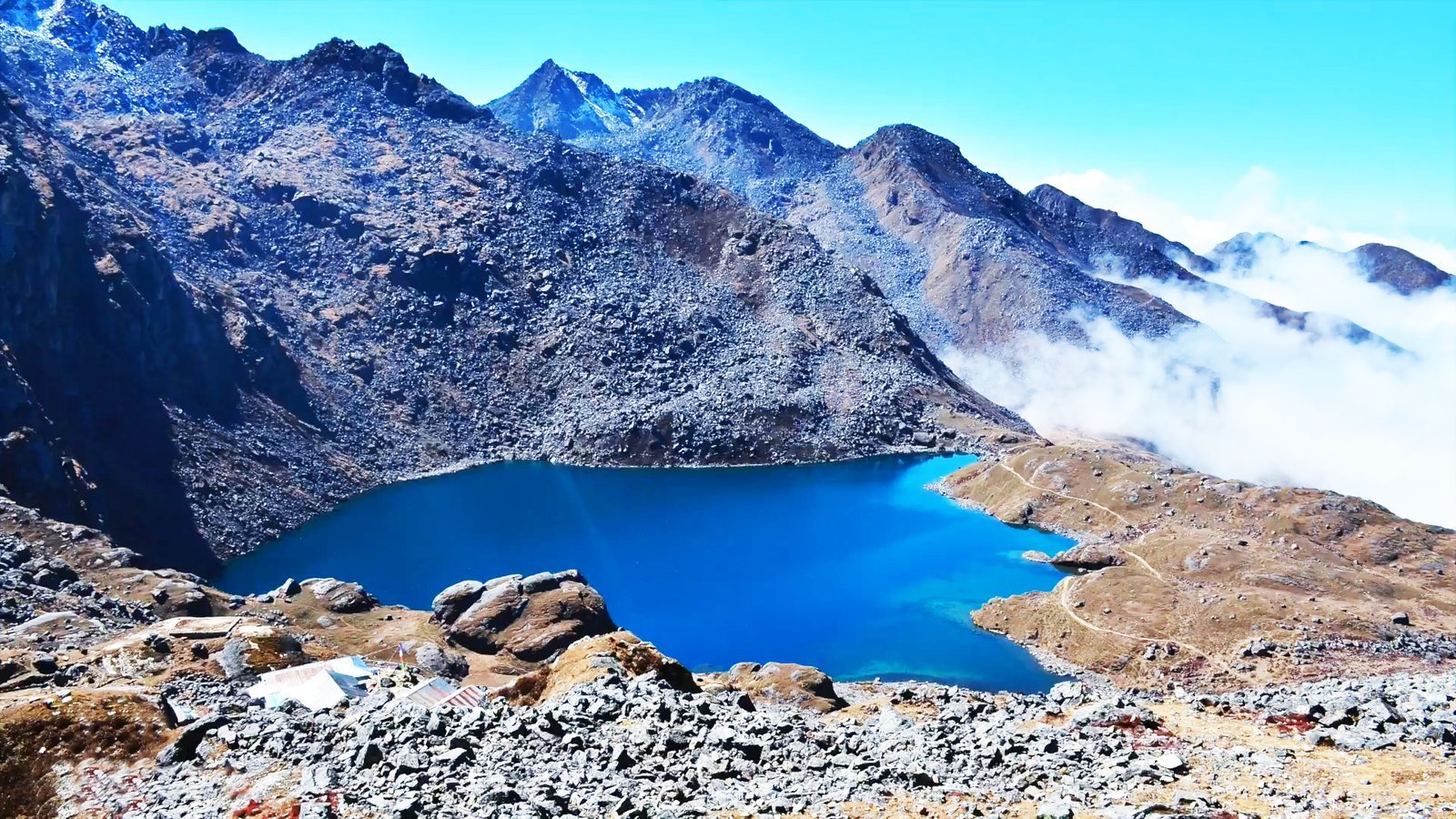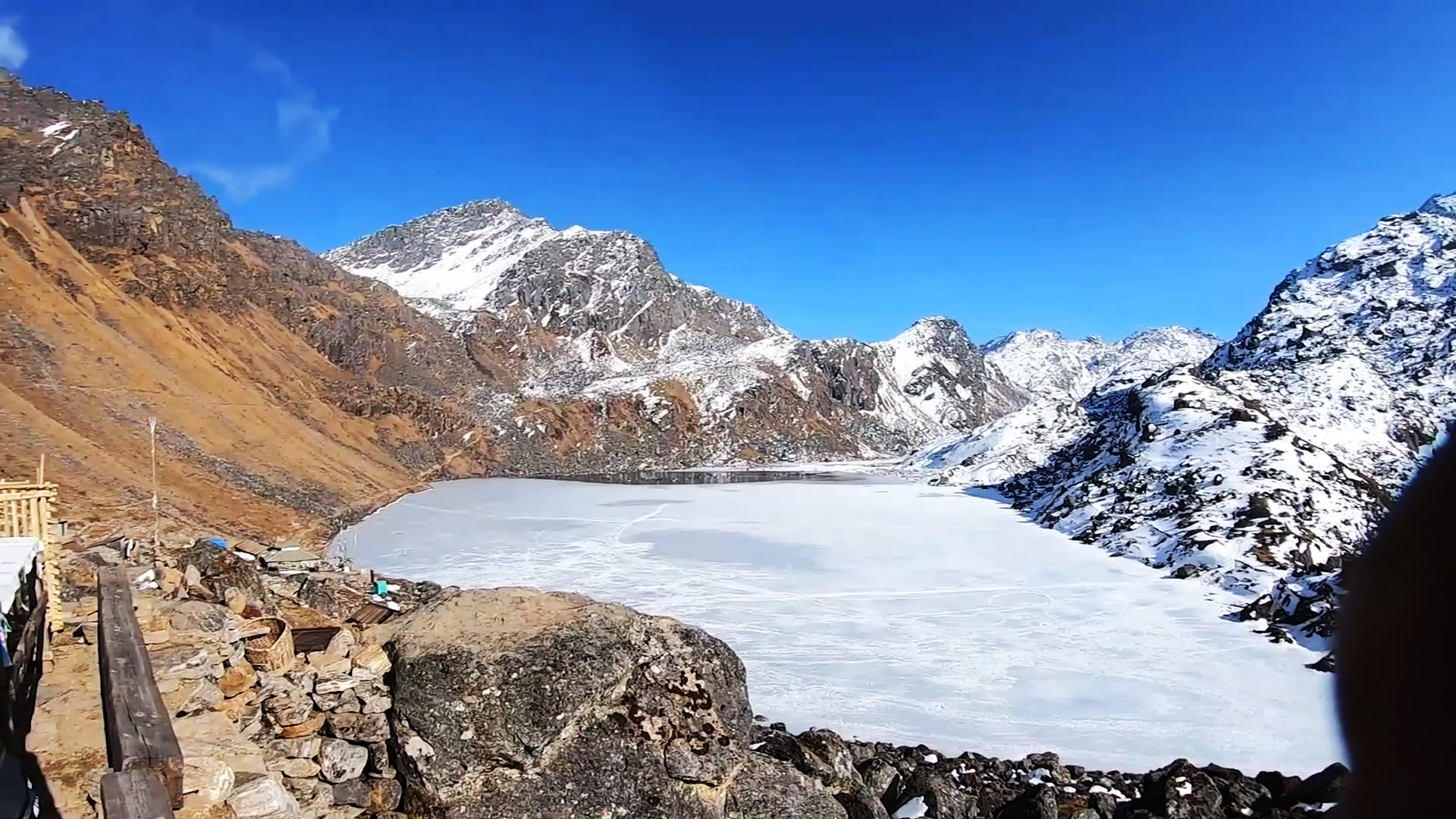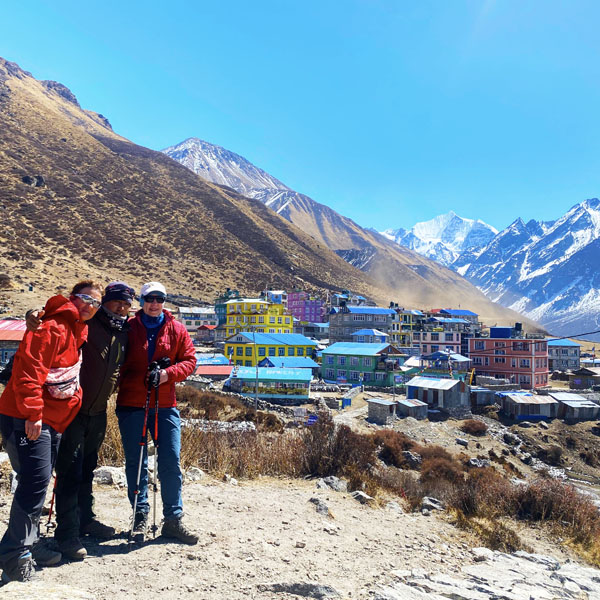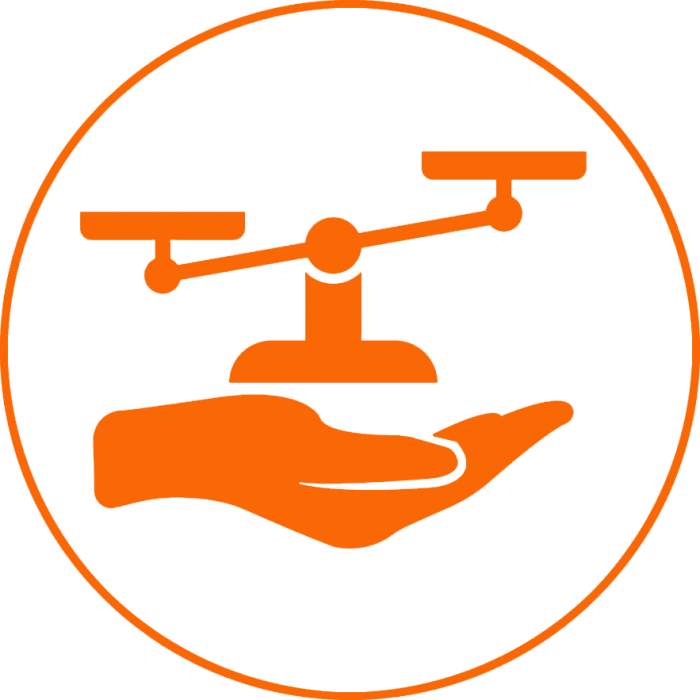Trip Overview
Introduction to Langtang Circuit Trek
Langtang Circuit Trek is Nepal’s best trekking route, with beautiful jungles, many interesting villages, wildlife, waterfalls, and a chance to bathe in the hot springs. Langtang is a narrow valley located north of Kathmandu and south of the Tibetan border. This is a pleasant and exciting trip, a time to enjoy and engage in the beauty of the Himalayas.
Langtang is close to Kathmandu and has a smaller population than other trekking destinations in Nepal. It is a comparatively less crowded region than the Annapurna area and the Everest region. This trek offers great diversity in nature, exciting ethnic groups, and cultures.
The Langtang area is Nepal’s second-largest protected national park, with 1000 species of flora, 150 different species of birds, and many wild animals. You can find some rare animals, such as red pandas, musk deer, Himalayan black bears, and pika, on this Langtang Circuit Trek.
You may like to visit: The Glimpse of Tibet Tour. In just 5 days, Cost, Distance, and Cultural Heritage
Excellent views of the mountains
The Langtang area offers excellent views of the mountains, such as Langtang, Annapurna, Manaslu, Ganesh, Gaurishankar, Rolwaling Range, etc. This is not just a Langtang Circuit Trek, but you can climb small peaks and visit the sacred lakes. The serenity and pristine environment will ease all your worries, and as you visit the holy lake (Gosainkunda), you will feel the greatness of God.
Gosainkunda Lake itself is situated at an altitude of 4,381 meters. It is sacred to Lord Shiva, and every summer, thousands of devotees come to take a bath in the holy lake water. Hundreds of Hindu pilgrims come to this lake every year during Janai Purnima in August.
There is no hiking or trekking experience required for the Lantang Circuit Trek. Just a normal walking experience is sufficient for this trip. The best season for this Langtang Circuit Trek is from February to May and August to December. But Odyssey Treks organizes throughout the year according to your wishes and schedule.
Trip Itinerary
Drive Kathmandu to Syabrubesi (1,550m) – 8 to 9 hours.
Syabrubesi to Gatlang (2,240m) – 6 to 7 hours walk.
Gatlang to Tatopani (2,607m) – 7 to 8 hours walk.
Tatopani to Thuman (2,400m) via Brimdang and Nagthali – 6 to 7 hours walk.
Thuman to Briddim (2,345m) – 7 to 8 hours walk.
Briddim to Lama Hotel (2,480m) – 6 to 7 hours walk.
Lama Hotel to Langtang village (3,541) – 6 to 7 hours walk.
Langtang village to Kyanjin Gompa (3,900m) – 4 to 5 hours walk.
Explore around Kyanjin Gompa.
Kyanjin Gompa to Lama Hotel (2,480m) – 7 to 8 hours walk.
Lama Hotel to Thulo Syabru (2,200m) – 5 to 6 hours walk.
Thulo Syabru to Singompa (3,584m) – 5 to 6 hours walk.
Singompa to Gosainkunda Lake (4,381m) – 7 to 8 hours walk.
Gosainkunda to Ghopte (3,430m) via Laurebinayak Pass – 7 to 8 hours walk.
Ghopte to Melamchi Gaon via Tharepati Pass (3,490m) – 6 to 7 hours walk.
Melamchi Gaon to Tarkeghyang (2,560) – 4 to 5 hours walk.
Tarkeghyang to Sermathang (2,621m) – 5 to 6 hours walk.
Sermathang to Melamchi Pool Bazaar (850m) – 5 to 6 hours walk.
Drive Melamchi Pool Bazar to Kathmandu – 3 to 4 hours.
Why not list the price?
Each client's needs may be different. The price of the trip varies according to the size of your group and the service you want. The cost of the trip is calculated according to the type of service and accommodation chosen by our customers.
Each trip is customized to fit the client's needs and group size, so the price of each organized trip is different. Please let us know the service you want and the size of the group. We create trips to suit your taste and travel budget per your requirements. Hope you find our price calculation reasonable according to your needs and preferences.
Frequently asked questions about this trip
How difficult is the trek?
The difficulty depends on where and how long you want to trek. The short trek is easy while the long trek requires some physical fitness.
What is altitude sickness?
Altitude sickness is normally known as acute mountain sickness. This can happen when people rapidly climb up to an altitude of more than 3000 meters. We ensure minimal risk by adding rest to our trekking itineraries. Most people will feel some effects of altitude, some shortness of breath and possibly light headache, this is normal enough. Acute mountain sickness patients are quite different and usually have a serious headache, sickness, and lose awareness. In almost all possible cases there are sufficient warning signs to take action properly. Descending to a lower altitude is usually enough to prevent any further problems.
What type of accommodation is available during the trekking?
There are mainly tea houses and lodges available for trekking and they are usually made using local materials and are very comfortable. These accommodations are often family-run and usually provide single and double rooms. The dining room is on the ground floor and is often on fire. All food will be cooked in order in the family kitchen. Toilet facilities are sometimes separate and sometimes outside. Most lodges provide mattresses and blankets. It's a good idea to always have a sleeping bag, which can be useful, and perhaps an inflatable pillow.
How long do we walk every day on trekking?
Trekking programs are classified into three different categories: soft, moderate and hard. Soft treks are only about 7 days to 10 days in duration. They generally do not go above 4000 meters; you can expect to walk about 4-5 hours each day. Moderate treks are challenging enough and long treks that go to the high hill country. Physically exhausting, this involves trekking along the cliffs of the mountains for about 6-8 hours. Harder treks are longer treks that go farther away from the general abode of trekkers and tourists. These physically challenging treks involve walking for 7- 9 hours each day.
How much weight do I need to carry on the trek?
You carry some of your personal belongings, such as warm clothing, water, snacks, sun block, cameras and more. Generally, these items will be lightweight, from 5 to 10kg (10 to 20 pounds). Our porters are available for other heavy goods and for your information one porter would be sharing by two people. The maximum weight carried by one porter is total 20 kg. this means 10 kg. per person is allowed for the trek. In case if you wish to carry more than this weight then you need to hire additional porters.
What is the best time for trekking in Nepal?
October and November are considered as the best times for trekking in Nepal due to dry season. December and January are also considered good times for trekking but it is extremely cold at high altitudes.
Google Reviews
Guest reviews
We made it to Everest Base Camp on the 3rd of November!!! Myself and Dami Sherpa, who was the best company and always extremely helpful. Amazing hike and great experience! Fully recommended!

